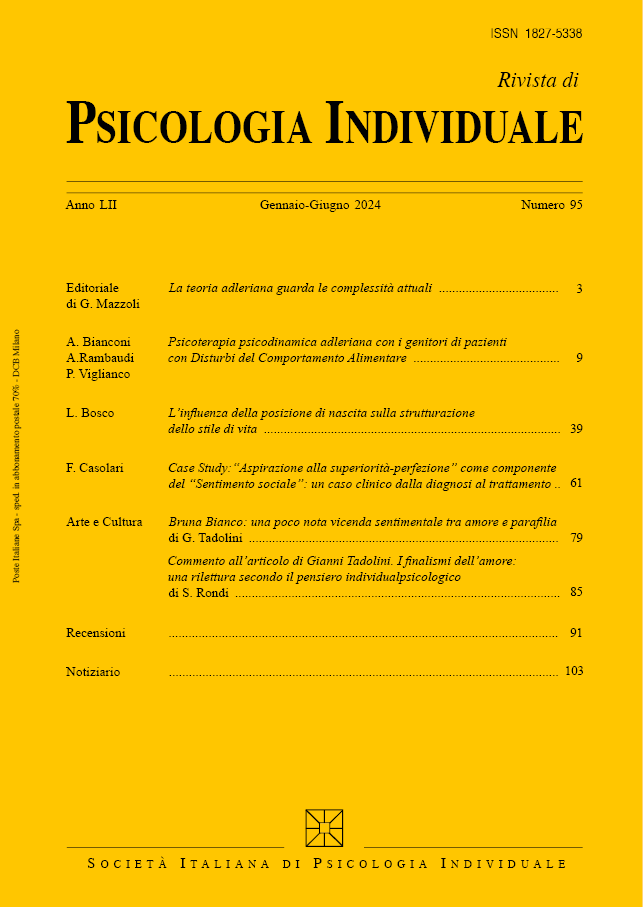Proposal for an individual-psychological operational model for the collective residential treatment of psychotic children
Keywords:
residential treatment, childhood, psychosis, boundaries, therapeutic team, will to power, social feelings, inferiority complexAbstract
Within the psychotherapeutic structure “I Delfini” aimed at psychotic, autistic, or mentally retarded children, the goal of teamwork is to promote greater self-integration by breaking the pathological dynamics of the family of origin. Examples are provided of how increased self-esteem and a sense of self-efficacy lead to a balance between the will to power and social feelings, i.e., an improvement in the relationship with the environment and with oneself. Following this theoretical premise, the organizational characteristics of this facility and the aims of the intervention are examined. The gradual integration of the child into ‘normality’, unlike what would happen in a traditional school, is made possible by the constant definition of boundaries between common and private spaces and freedom of action, symbols of the boundaries of the self and the other. Through the diversification of the activities offered, the operator accompanies the child in a constant process of reasoning about everything that happens, thus promoting a gradual awareness of oneself and others. Accompanying children in the examination of individual differences discourages feelings of inferiority experienced in relationships with others, instead supporting cooperation






